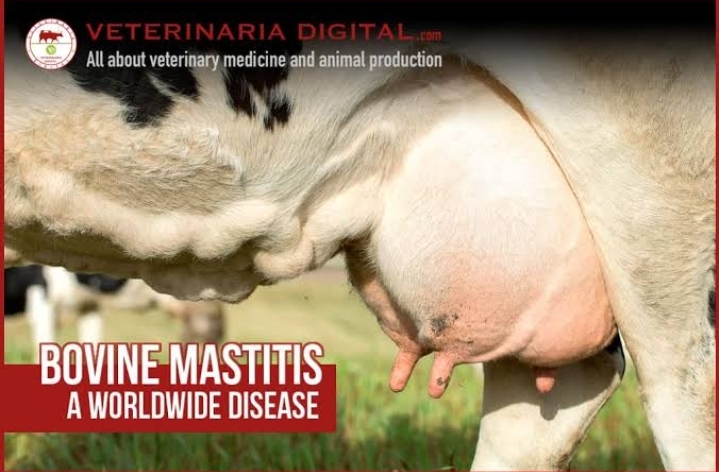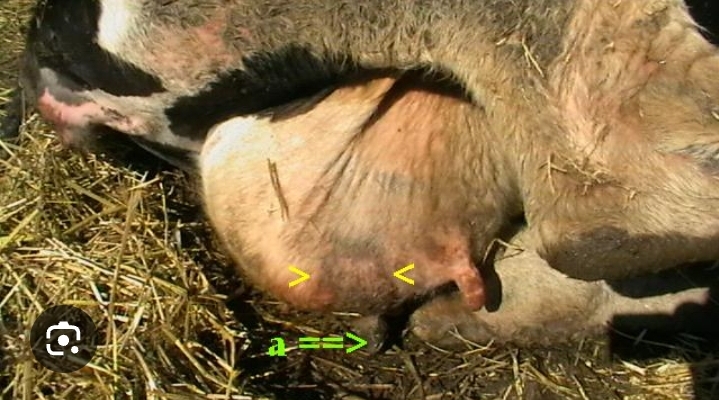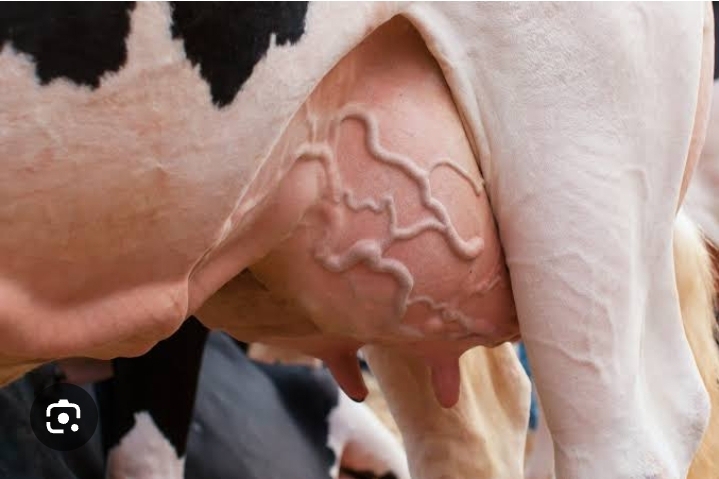
Mastitis is a significant disease in animals, particularly in dairy cows, but it can also affect other animals like goats, sheep, and pigs. It is an inflammation of the mammary gland, usually caused by bacterial infection, though it can also result from fungal infections or injury. Mastitis is a major concern in the dairy industry because it affects milk production, milk quality, and animal welfare.
Also Read about How do chicken Reproduce
Causes of Mastitis in Animals:
- Bacterial Infection: The most common cause of mastitis in animals. Bacteria can enter the udder through the teat canal, especially if there are cuts or sores on the teats.
- Poor Milking Practices: Inadequate milking techniques or unclean milking equipment can introduce bacteria to the udder.
- Environmental Factors: Wet and dirty living conditions can increase the risk of mastitis as they promote the growth and spread of bacteria.
- Injury to the Udder: Physical trauma or damage to the teats or udder can predispose an animal to mastitis.
- Genetic Factors: Some animals may be genetically predisposed to mastitis due to traits like udder structure.

Symptoms of Mastitis in Animals:
- Swollen, hard, or hot udder: The udder or specific quarters may become visibly swollen and feel hot or hard to the touch.
- Discolored or clotted milk: Milk from an infected udder may be watery, yellow, or contain clots and pus.
- Decreased milk production: Affected animals may produce less milk, and the quality of the milk may be reduced.
- Pain and discomfort: Animals with mastitis may show signs of pain, such as kicking during milking or being reluctant to be milked.
- Fever and lethargy: In severe cases, the animal may exhibit signs of systemic illness, including fever and reduced appetite.
Treatment and Prevention:
- Antibiotics: Infected animals are typically treated with antibiotics to clear the bacterial infection.
- Proper Milking Hygiene: Ensuring clean milking equipment, proper milking techniques, and good udder hygiene can help prevent mastitis.
- Regular Udder Checks: Monitoring the health of the udder regularly can help catch signs of mastitis early.
- Culling Chronic Cases: In some cases, animals with chronic mastitis that do not respond to treatment may need to be culled to prevent the spread of infection.
Mastitis is a costly disease in the dairy industry due to the loss of milk production and the expenses associated with treatment and prevention. Effective management and prevention strategies are crucial to maintaining animal health and dairy production efficiency.
The Treatment for Mastitis disease in Animal
Treating mastitis in animals, particularly in dairy cows, involves a combination of veterinary care, proper management practices, and sometimes adjustments in farm practices to prevent recurrence. Here’s an overview of the treatment options:

1. Antibiotic Therapy:
- Intramammary Antibiotics: The most common treatment involves the direct infusion of antibiotics into the affected quarter of the udder. This targets the infection at its source.
- Systemic Antibiotics: In more severe cases, or when the infection has spread beyond the udder, systemic antibiotics (administered via injection) may be necessary.
- Choice of Antibiotics: The choice of antibiotics may depend on the specific bacteria causing the infection, which can be identified through milk culture tests. Common bacteria include Staphylococcus aureus, Streptococcus agalactiae, and Escherichia coli.
2. Anti-Inflammatory Drugs:
- Non-Steroidal Anti-Inflammatory Drugs (NSAIDs): These are often used to reduce pain, inflammation, and fever, making the animal more comfortable and aiding in recovery.
3. Supportive Care:
- Frequent Milking: Milking the affected animal more frequently helps to clear the infection and reduce the pressure in the udder. This also helps to remove bacteria-laden milk from the infected quarters.
- Hydration and Nutrition: Ensuring that the animal is well-hydrated and receiving proper nutrition is crucial for recovery, especially in cases where the animal is systemically ill.
4. Teat Sealants:
- Dry Cow Therapy: At the end of lactation, administering long-acting antibiotics and/or teat sealants can help prevent new infections during the dry period.
- Teat Dipping: After each milking, dipping the teats in an antiseptic solution can help prevent new infections.
5. Culling:
- Chronic Cases: Animals with chronic mastitis that do not respond to treatment may need to be culled to prevent the spread of infection to other animals in the herd.
6. Herd Management Practices:
- Improved Milking Hygiene: Ensuring that the milking equipment is clean and properly functioning is essential. Teat sanitization before and after milking can also reduce the incidence of mastitis.
- Environmental Management: Keeping the animals in clean, dry, and comfortable conditions can reduce the exposure to environmental pathogens that cause mastitis.
- Monitoring and Early Detection: Regular monitoring of the herd for signs of mastitis, including somatic cell counts (SCC) in milk, can help in early detection and treatment, reducing the overall impact on the herd.

7. Vaccination:
- Vaccines: In some regions, vaccines are available against specific pathogens like Staphylococcus aureus and Escherichia coli. While not a complete solution, they can help reduce the severity and incidence of mastitis.
Veterinary Consultation:
It is essential to work closely with a veterinarian to develop an effective treatment plan, especially since improper treatment can lead to antibiotic resistance, making future infections harder to treat. Regular veterinary visits can also help in identifying risk factors specific to the herd or farm and implementing appropriate preventive measures.

Leave a Reply